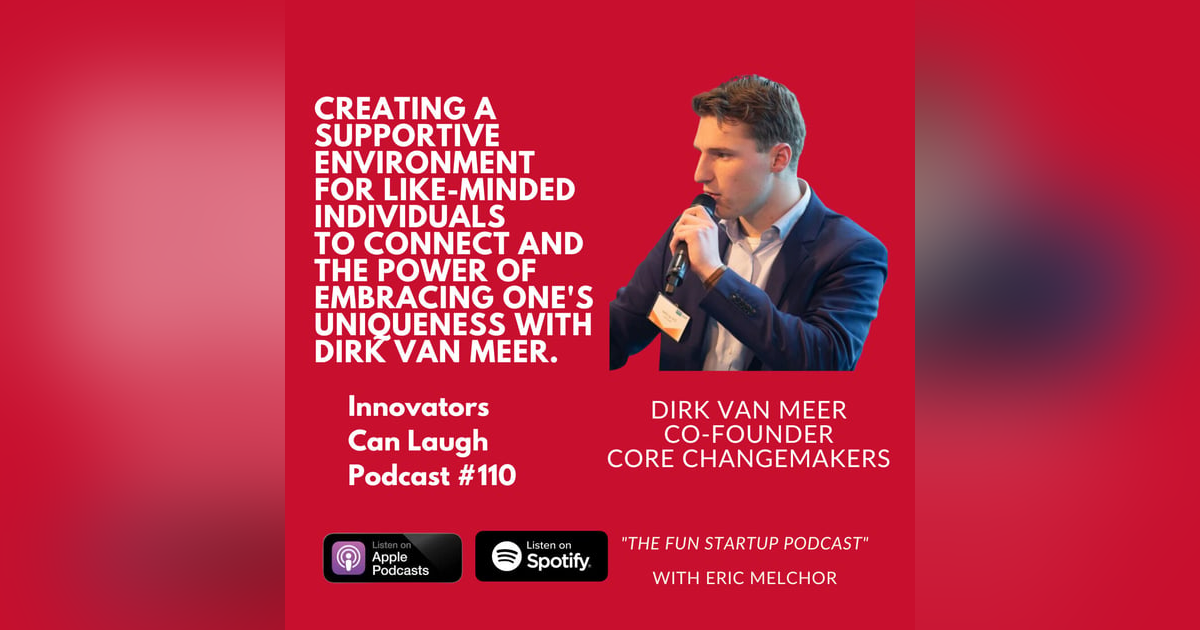Creating a supportive environment for like-minded individuals to connect and the power of embracing one's uniqueness with Dirk van Meer.

Dirk van Meer is co-founder of Core Changemakers. 5 years ago Dirk got together with 3 friends with the idea of creating a student team that focuses on a sustainable economy.
Fast forward to today and there are 160 students who have joined and they are working on innovative projects like reducing battery fires and recycling solar panels!
In this conversation we talk about:
- the importance of creating a supportive and inclusive environment for like-minded individuals to connect, collaborate, and learn from one another.
- the challenge of choosing between pursuing financially lucrative opportunities and staying true to the mission and values of a community\
- how certain traits associated with autism can be leveraged as strengths in entrepreneurship
- overcoming challenges, showcasing the resilience and determination required to build and sustain a successful startup ecosystem
Learn about Core Changemakers at www.core-changemakers.com
***
Find other episodes on > https://www.innovatorscanlaugh.com
Watch select full-length episodes on our YouTube channel > https://www.youtube.com/watch?v=gq9WcdRAVnk/channel/UCMZz4aC1lhYDlwvoOrpsUZg
Connect with me on LinkedIn > https://www.linkedin.com/in/ericmelchor
Get the Innovators Can Laugh newsletter > https://innovatorscanlaugh.substack.com/
***
SAY THANKS
Tune in to every conversation about exciting European Startups and Innovators on Apple Podcasts, Spotify, and Amazon! Leave a rating and review so we can keep making amazing interviews!
Listening on a desktop & can’t see the links? Just search for Innovators Can Laugh in your favorite podcast player.
Connect with Eric:
Visit his website: https://innovatorscanlaugh.com
For the Innovators Can Laugh newsletter in your inbox every week, subscribe at https://innovatorscanlaugh.substack.com
Past Guests:
----
Past guests on Innovators Can Laugh include Yannik Veys, Ovi Negrean, Arnaud Belinga, Csaba Zajdó, Dagobert Renouf, Andrei Zinkevich, Viktorija Cijunskyte, Lukas Kaminskis, Pija Indriunaite, Monika Paule, PhD, Vytautas Zabulis, Leon van der Laan, Ieva Vaitkevičiūtė.
-----
Additional episodes you might enjoy:
#55 Yannik Veys - From creating the Uber for service professionals to growing Hypefury
#53 Tzvete Doncheva - Overcoming barriers to get into a VC with Tzvete Doncheva
#50 V...











